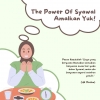2. Religion's Role in Mobilization
Religion is a significant aspect of Palestinian society. For many, it serves as a source of resilience and motivation. Sukarno's Nasakom did not suppress religion; instead, it incorporated religious values as a vital component of societal unity. In Palestine, respecting and integrating religious sentiments into a broader framework of unity could foster greater acceptance of diverse political ideologies.
3. Communal Solidarity: The Nasakom Approach to Socialism
While communism in its strict sense may not resonate with Palestine's sociopolitical context, the spirit of socialism --- collective welfare, equity, and social justice --- is embedded in its struggle. Programs that prioritize community well-being, equitable resource distribution, and social solidarity can mirror Nasakom's socialist ethos, bridging divides between factions.
Challenges to Adopting Nasakom Principles
While the theoretical alignment is compelling, the practical implementation of Nasakom-inspired unity in Palestine faces significant challenges:
1. Deep-Rooted Distrust
Decades of rivalry between Fatah and Hamas have created a culture of mutual suspicion. Overcoming this mistrust requires transformative leadership and sustained dialogue.
2. External Interference
Geopolitical actors often exploit factional divisions to advance their interests. A unified Palestinian leadership inspired by Nasakom would need to navigate these external pressures carefully.
3. Cultural and Historical Differences







